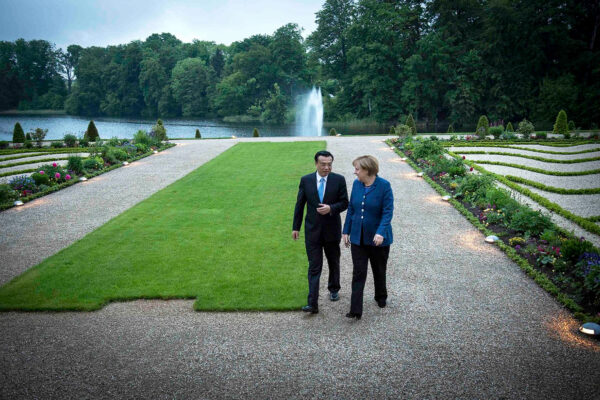
1,001 party delegates will elect the next leader of Germany’s ruling Christian Democratic Union (CDU) in a digital congress on Saturday.
The winner will succeed Annegret Kramp-Karrenbauer, the defense minister, who succeeded Angela Merkel in 2018. Merkel stepped down as party leader, but not chancellor, that year. Kramp-Karrenbauer quit two years later. She never approached Merkel’s popularity in the polls, nor her authority in the party.
Merkel’s approval rating is approaching 90 percent, but she is not seeking a fifth term. Whoever is elected CDU leader on Saturday will be the party’s presumptive chancellor candidate for the election in September (the Christian Democrats are polling at 35-37 percent), but that is not a given.
Candidates
The official leadership candidates are three Catholic, middle-aged men from North Rhine-Westphalia, Germany’s most populous state and home to its Ruhr industries:
- Armin Laschet is the prime minister of the state and the most Merkel-like candidate: consensus-oriented, pro-immigration, pro-EU and dovish on China and Russia. He was the favorite, but his mishandling of the outbreak of coronavirus in North-Rhine Westphalia has given Christian Democrats pause.
- Friedrich Merz would represent a break with the Merkel era. His pro-American, small-government, law-and-order politics feel like a throwback to an earlier time, which may have something to do with the fact that he’s been out of politics for a decade.
- Norbert Röttgen, the party’s foreign-policy spokesman in parliament, presents himself as the man of the future. He takes a harder line on Russia, is pro-EU, mildly liberal and popular with young Christian Democrats.
Two more men are unofficially running to become the joint chancellor candidate of the CDU and its Bavarian sister party, the Christian Social Union (CSU):
- Jens Spahn, the ambitious health minister, has enjoyed a bounce in the polls for his competent handling of COVID-19. He is right-wing, criticized Merkel’s open-doors immigration policy, and gay in a party that largely voted against marriage equality in 2017.
- Markus Söder, the prime minister of Bavaria, whose popularity is second only to Merkel’s. Under his leadership, the CSU has stopped trying to outflank the far right and returned to the center-right.
My own view is that, between the five of them, Söder is the best candidate. He would be the first CSU chancellor of Germany.
Merkel’s legacy
The Christian Democrats have governed Germany for fifty of the past seventy years, including the last fifteen years under Merkel.
The secret of her success has been that she seldom challenged public opinion. Merkel abolished compulsory military service, expanded child care, introduced a national minimum wage and shut down Germany’s nuclear power plants with the support of the majority of the country — and, crucially, the support of the Social Democrats, the Christian Democrats’ traditional rivals, with whom Merkel formed three coalitions.
The two times she stuck her neck out — bailing out Greece and other weak eurozone countries during the debt crisis of 2009-11 and letting in more than one million asylum seekers at the height of the European migrant crisis in 2015 — public opinion eventually caught up with her.
But conservatives in her own party have never forgiven her for those decisions. They accuse Merkel of moving the CDU too close to the center, thus giving the far right an opportunity to return after half a century in the wilderness. Merz and Spahn are in that camp.
Lurch to the right
The centrists, including Laschet and Röttgen, fear that a lurch to the right would risk throwing away Merkel’s gains with younger and women voters, who have an alternative in the Social Democrats and Germany’s moderate Green party.
Merz, a millionaire who owns two private jets, is also unlikely to make inroads in the still poorer former East Germany. Merkel was the first CDU leader from the east.
Söder, in an “only Nixon could go to China” way, might bridge this divide. Conservatives feel he’s one of their own, but his politics have been flexible. Which is why I think he’s the best candidate, although Röttgen is closer to my own preferences.
